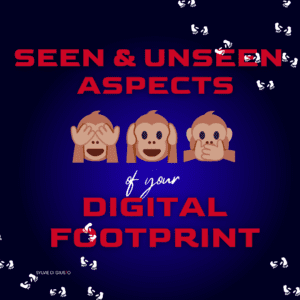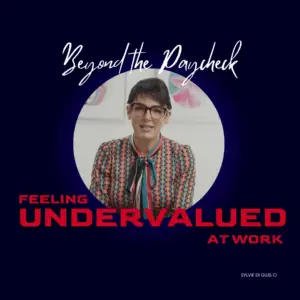SHOULD I QUIT SOCIAL MEDIA
Today, social media allows us to share our lives with others. Some people rarely post or may not even join social media. Others may occasionally share a photo of an outing or vacation.
Then there are those that post constantly. Some will even share intimate details of their private lives that friends would rather not know!
And some may even ask themselves, “Should I just quit social media overall.”
When it comes to social media sharing, it’s different strokes for different folks. And this post is not to say that you should quit social media at all. After all, it also allows you to connect with family and friends, or use it as a professional to highlight your career milestones, share your valuable insights and comment on those of customers or clients.
But if you are a professional, you must be careful about what you post. Your posts could show you in an unfavorable light and turn off your clients. You are possibly asking for being judged (even if you never have the chance to meet them in person.)
It is for this reason that it’s best to keep your private life private. Need more convincing? Read on to find out ten reasons why you will want to think twice before posting the next Facebook rant.
There’s another expression to consider in business. The customer is always right. If the customer is displeased by what they are seeing, they may choose not to work with your company. This would negatively affect your bottom line and your company’s success.
So what can we do to put our best foot forward? Here are a few suggestions.
10 Reasons to keep your life private
You will Be Perceived as More Trustworthy.
If you are constantly sharing gossip and personal information on social media, clients may question how trustworthy you are when it comes to sharing their information. They may think a private person will be more likely to keep their data private. Your discretion will reassure them and make them feel more confident about working with you.
You Don’t Have to Explain Yourself
It seems that the more you share, the more you must explain. Take, for instance, Finland Prime Minister Sanna Marin. We are not judging her behavior, and we are aware that much of the footage of her wild nights on the town was leaked as opposed to being publicly posted. But she is not a private person, and she often must defend and explain her actions. If she avoided the spotlight in her personal life, there would be no need for an explanation.
You Avoid Unwanted Scrutiny.
The more you put yourself out there, the more people will scrutinize you. They will look at the way you act, your appearance, and even the way you write, and they will form opinions that may not be favorable. It’s best to avoid scrutiny by keeping to yourself.
You Can Be More Focused on Work Instead of Drama.
When you post personal information online, you never know what kind of backlash you’re going to get. In this political and social climate, it may not be the type of reaction you are hoping for. People can say nasty things, and matters can escalate quickly.
As a professional, the last thing you need is the stress and drama of an online battle. Beyond making you upset, it will also take you away from being productive at work. It’s best to keep to yourself so you can stay focused on what’s important.
You Can Avoid Potential Embarrassment.
If you post often, you may have posted something at some point that’s potentially embarrassing. Or you may post something you have no problem with, but someone perceives it in a way that makes it embarrassing for you. You can avoid potential embarrassment by sticking to posts you feel are safe.
You Can Be Perceived as Negative.
It’s possible that the content in your posts will cause you to be perceived in a negative light. This is especially the case if you post a lot of rants or air your dirty laundry. It will be a turn-off for clients no matter how talented you are in other aspects of your work.
You May Give Them a Reason Not to Like You.
Any sort of opinion you share on social media can be held against you. This is especially the case if you air your opinions on social and political matters. You are best keeping your opinions to yourself.
You Could Make Others Feel Uncomfortable.
Even if you don’t find your posts embarrassing, others might. For example, you may post a picture of yourself out on the town drinking seeing nothing wrong with it. But a client may feel uncomfortable that they chose you to partner with.
You Can Maintain a Sense of Mystery.
There are benefits to keeping private on social media. People will think there’s more to you than what you post. This sense of intrigue will make them want to know what you can offer them professionally.
It Makes it Easier to Say No.
When people know all about your private life, they may wonder why you would turn down a request. For example, if you are so public that everyone knows what you do and where you go, they may be familiar with your availability. So when you say no to something, they may feel as if they are not a priority.
They may also push you for an explanation knowing you tend to share freely.
If you keep your private life private, you can simply say, no, sorry, I won’t be available”, or something to that effect, and they will be less likely to question your decision.
What Can I Post?
It’s fun staying connected and sharing with friends. As a professional, you can post pictures of fun times with family and friends. But here’s what you should avoid posting:
- Political and religious content: If you post this type of content, you are asking for an argument.
- Negative or derogatory content: If you post negative content, you will be seen in a negative light.
- Irrelevant viral posts: Irrelevant viral posts will dumb down your credibility, especially if it’s something people have seen before.
- Posts with spelling and grammar error: Put your best foot forward by ensuring your spelling and grammar is correct before hitting ‘publish’.
- Self-incriminating evidence, such as pictures and videos of yourself taking drugs, using firearms, or even taking selfies on the highway, should not be posted.
- Expensive new purchases: These tend to amplify feelings of failure. They also make you a prime target for a robbery.
- Personal Advice: You should refrain from giving personal advice as it could backlash if you don’t know all the facts. You should also avoid asking for personal advice as it can make you look unconfident.
- Scammy Contests and Giveaways: You should never promote scammy contests and giveaways to friends. If they fall victim to a scam you recommended, it can hurt your professional reputation.
- Privileged Inside Information: It’s advisable not to give away privileged inside information on social media. It can get you in trouble with your company and colleagues, and it will make clients think you are not to be trusted.
Posting on social media can be fun. But you must think about what you’re posting to ensure you don’t damage your professional reputation. The tips in this article will guide you in the right direction.
What are your rules for what you will and won’t post?
Should I quit Social Media in a nutshell
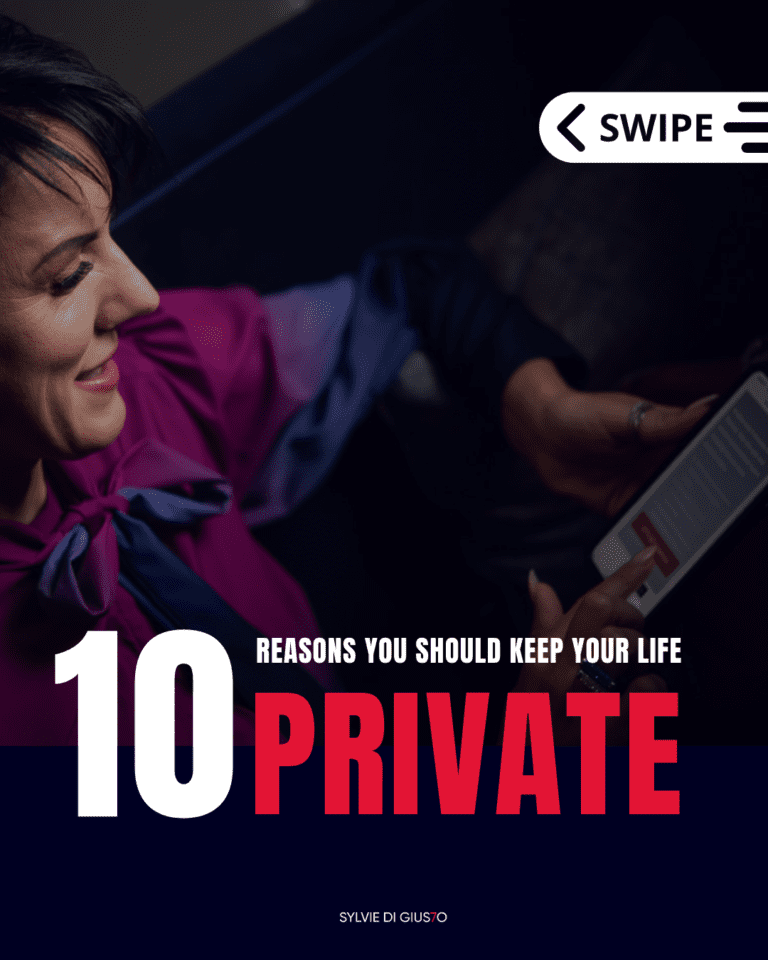
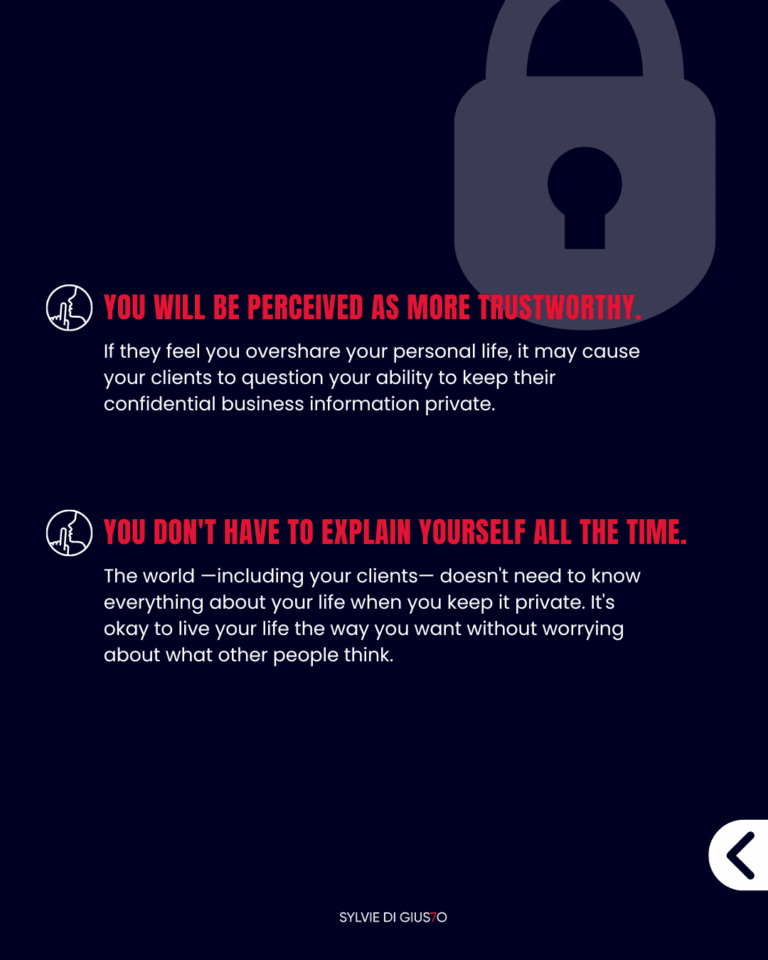
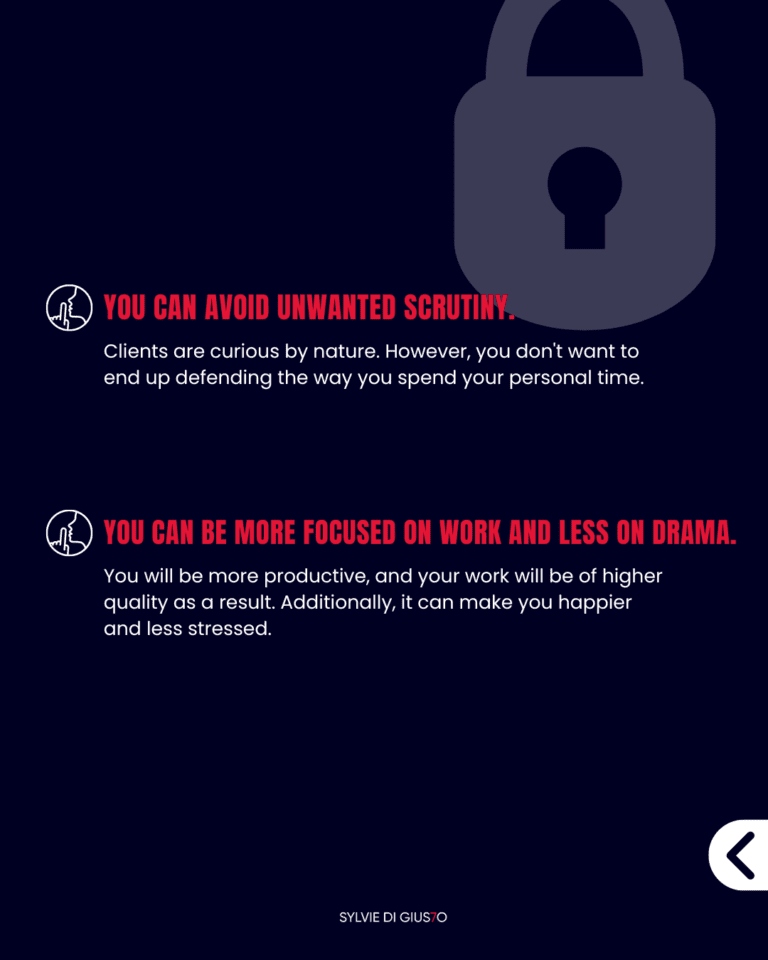
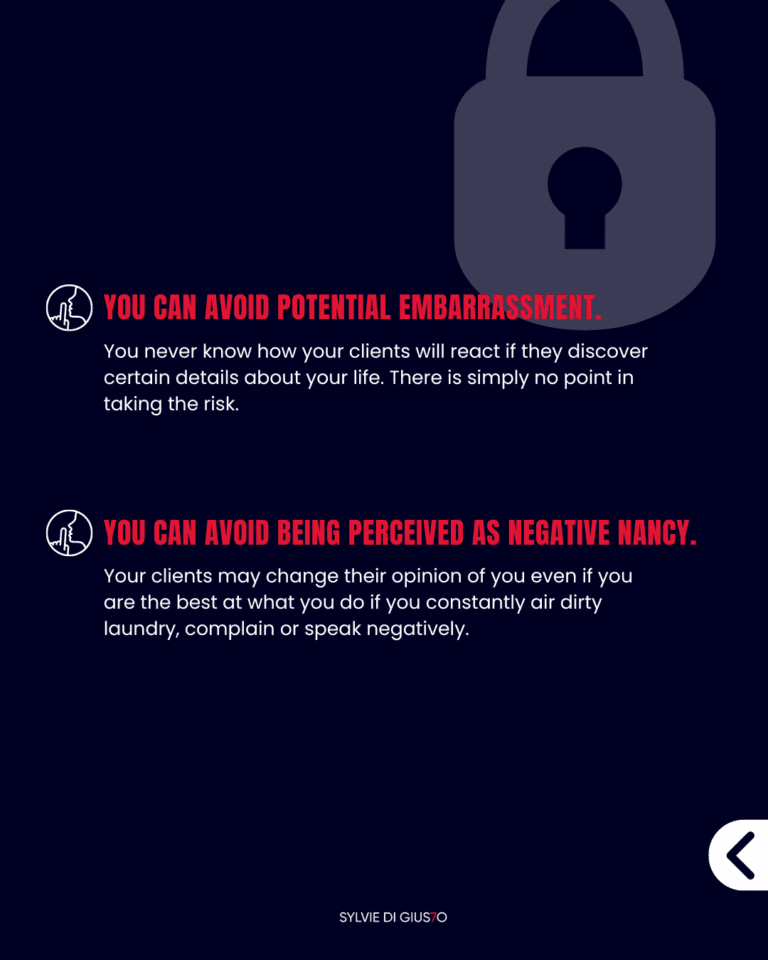
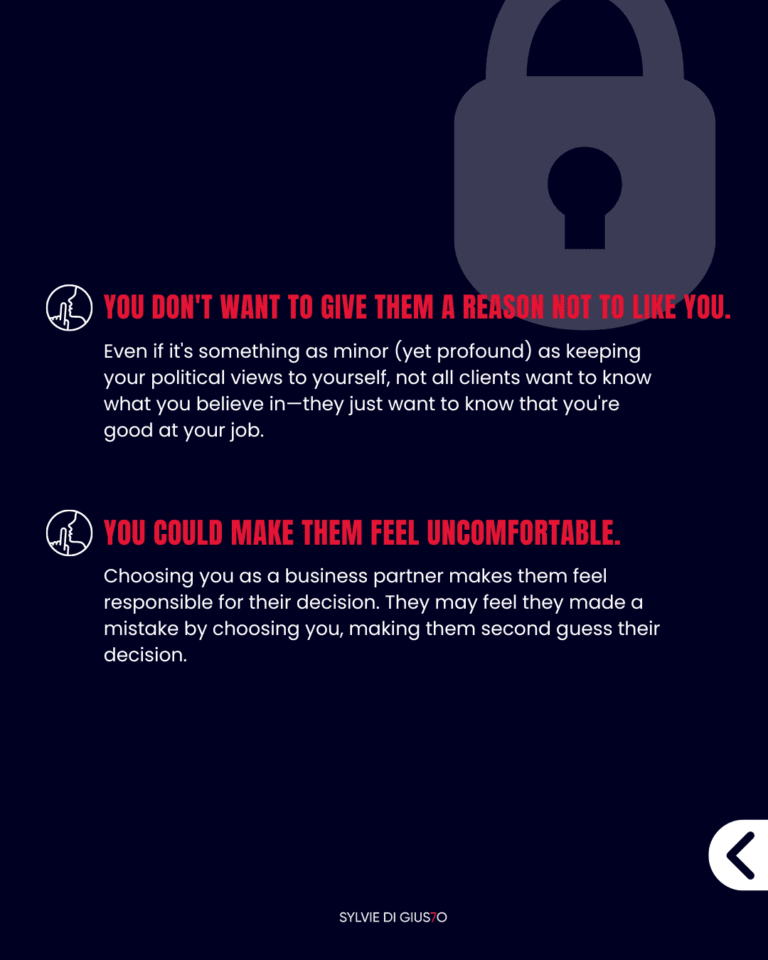
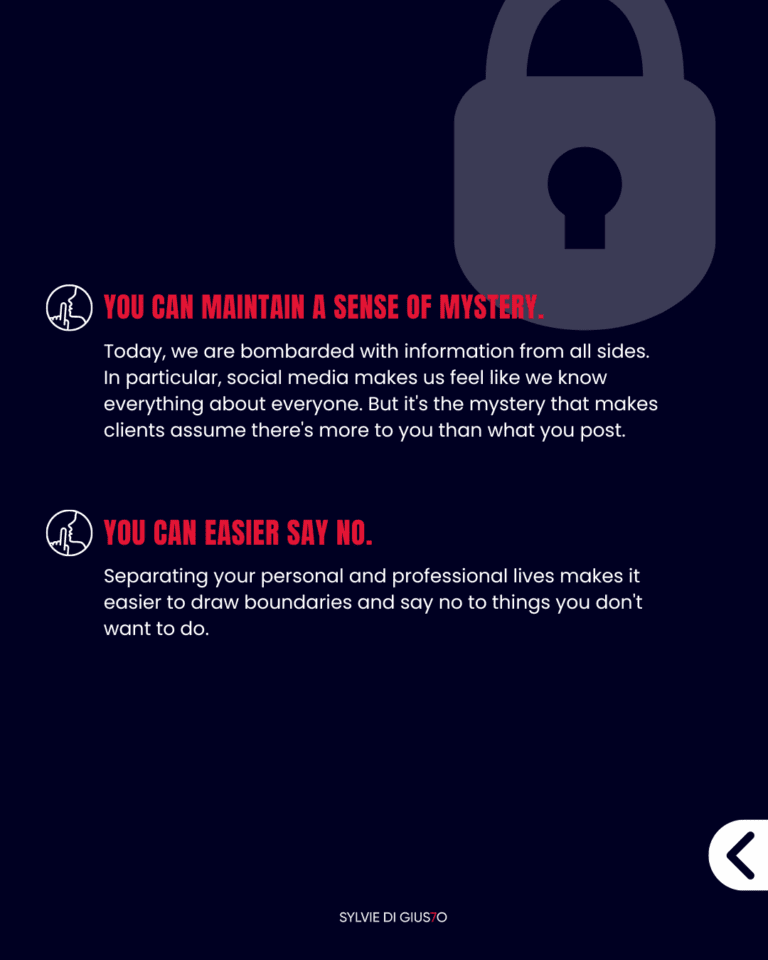
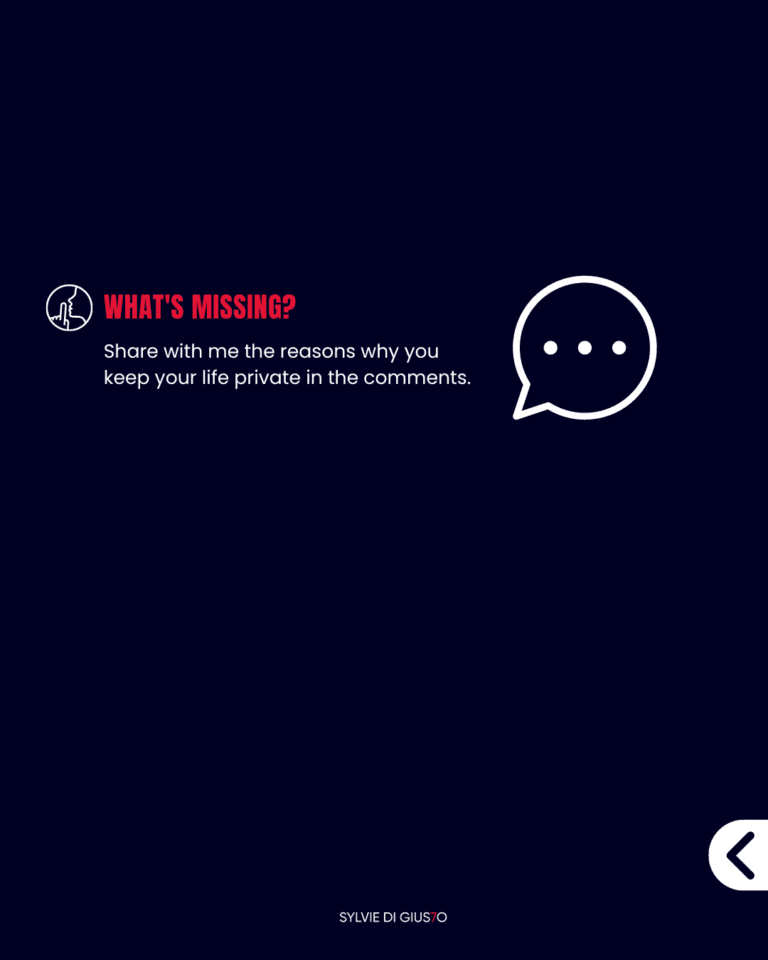
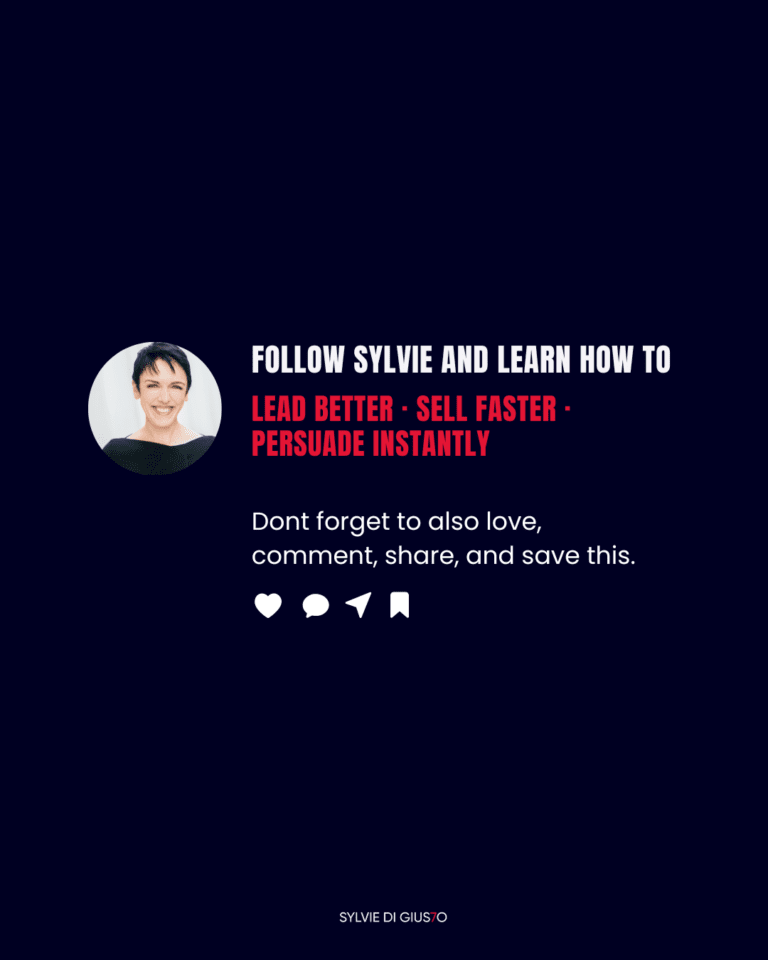
PS: Interested in more content like this? Make sure to follow me on Instagram. It’s where I visualize and publish my thoughts daily. I hope to see you there.
